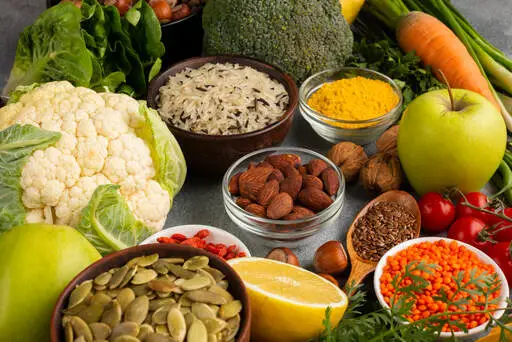Welcome to good to best, where we guide you on a journey from passionate baker to successful food entrepreneur. Imagine turning your kitchen experiments into a flourishing food business, delighting customers with unique and flavorful baked goods. Join us as we explore how you can make your mark in the food industry, combining your baking talent with a savvy business approach.
Table of Contents
1. Finding Your Niche in the Food Market
In the vast and diverse food market, finding your niche is essential for standing out and building a loyal customer base. Whether you specialize in artisanal bread, exotic pastries, or health-conscious desserts, pinpointing what makes your baked goods unique is crucial. The key is to focus on an area where you excel and that resonates with food lovers. This might involve incorporating traditional oriental flavors into your recipes, offering a unique twist that sets your products apart.
Exploring market trends and consumer preferences can provide valuable insights into potential niches. For instance, there is a growing demand for gluten-free and vegan options, as well as for products that use organic and locally sourced ingredients. By aligning your baking hobby with these trends, you can carve out a profitable niche in the food market. Understanding your niche not only helps in product development but also in crafting targeted marketing strategies that appeal to your specific audience.
- Identifying Unique Selling Points
Identifying your unique selling points (USPs) is a vital step in transforming your baking hobby into a successful food business. Your USPs are the distinct features and qualities that make your baked goods stand out. This could be anything from the use of rare oriental spices, innovative flavor combinations, or a commitment to using only natural and organic ingredients. Highlighting these unique aspects will attract food enthusiasts who are looking for something special and different.
Your story and personal touch can also be powerful USPs. Sharing the inspiration behind your recipes or the traditional techniques you use can create a deeper connection with your customers. For example, if your recipes are inspired by family traditions or oriental culinary heritage, make that a central theme in your branding. This not only adds authenticity to your food business but also makes your products more appealing to customers seeking unique and culturally rich food experiences.
- Understanding Your Target Audience
Understanding your target audience is fundamental to the success of your food business. Knowing who your customers are, what they value, and what they seek in baked goods will guide your product development and marketing efforts. Are your customers health-conscious individuals looking for nutritious snacks, or are they food adventurers eager to try new and exotic flavors? Identifying these characteristics will help you tailor your offerings to meet their needs and preferences.
Conducting market research is an effective way to gather insights about your target audience. Surveys, focus groups, and analyzing competitors can provide valuable information about consumer behavior and preferences in the food market. For example, if you discover a growing interest in oriental desserts with a modern twist, you can focus on developing products that cater to this trend. By understanding your target audience, you can create a more personalized and engaging experience that keeps customers coming back for more.
2. Perfecting Your Baking Skills
Perfecting your baking skills is a crucial step in turning your baking hobby into a profitable food business. The food industry is highly competitive, and delivering consistently high-quality products is essential for success. Dedicate time to refining your techniques, mastering different baking methods, and ensuring that every item you produce meets the highest standards of taste and presentation. This commitment to excellence will help you build a reputation for quality, attracting discerning customers who appreciate the finer details of good food.
Experimentation and innovation are key components of perfecting your baking skills. Don’t be afraid to try new recipes, test unconventional ingredients, and push the boundaries of traditional baking. By continually challenging yourself and exploring new possibilities, you can develop unique and exciting products that stand out in the food market. This not only enhances your skills but also keeps your offerings fresh and appealing to your customers.
- Continuous Learning and Improvement
Continuous learning and improvement are vital for anyone looking to succeed in the food business. The culinary world is always evolving, with new techniques, trends, and ingredients emerging regularly. Stay updated with the latest developments by attending baking workshops, enrolling in advanced courses, and participating in food industry events. Learning from experts and peers can provide valuable insights and inspire new ideas, helping you stay ahead of the curve.
Additionally, seek feedback from customers and use it constructively to refine your products. Conduct taste tests, ask for reviews, and be open to suggestions. This feedback loop will guide you in making necessary adjustments and improvements, ensuring that your baked goods consistently meet the high standards expected in the food market. Embracing a mindset of continuous learning and improvement will not only enhance your skills but also ensure the long-term success of your food business.
- Experimenting with Oriental Flavors
Experimenting with oriental flavors can add a unique twist to your baking and help you stand out in the crowded food market. Incorporating ingredients like matcha, black sesame, yuzu, and red bean paste can transform traditional baked goods into exotic delicacies that intrigue and delight customers. These flavors not only bring a distinctive taste but also reflect a rich cultural heritage that can appeal to a broad audience seeking new and diverse food experiences.
Start by integrating these oriental flavors into familiar recipes. For instance, you could create matcha-infused cookies, black sesame cakes, or yuzu-flavored tarts. Experiment with different combinations to find the perfect balance that enhances your baked goods without overpowering them. By introducing these unique elements, you can create a signature product line that sets your food business apart and attracts adventurous food lovers who are eager to try something new and exciting.
3. Developing a Business Plan
Developing a comprehensive business plan is a fundamental step in transforming your baking hobby into a profitable food business. A well-crafted business plan serves as a roadmap, guiding you through each stage of your entrepreneurial journey. It outlines your business goals, strategies, and the steps needed to achieve them. This document not only helps you stay focused and organized but also makes it easier to secure funding from investors or financial institutions who want to see a clear vision of your food business.

In the food industry, where competition is fierce, a solid business plan can set you apart. It should detail your unique selling points, market analysis, and marketing strategies. Highlight what makes your baked goods special, whether it’s the use of exotic oriental flavors, organic ingredients, or artisanal techniques. By clearly defining your niche and how you plan to address the needs and preferences of your target market, you can create a compelling case for why your food business will succeed.
- Crafting a Clear Roadmap
Crafting a clear roadmap is an essential component of your business plan. This involves setting short-term and long-term goals, and outlining the specific steps needed to achieve them. Your roadmap should cover every aspect of your food business, from product development and sourcing ingredients to marketing and sales strategies. By breaking down your objectives into manageable tasks, you can track your progress and make adjustments as needed.
Consider incorporating milestones that reflect key achievements, such as launching a new product line, reaching a certain number of sales, or expanding to a larger production facility. This not only keeps you motivated but also provides a timeline for when you expect to reach these goals. In the context of the food industry, having a clear roadmap helps ensure that you are prepared for seasonal changes, market trends, and other variables that can impact your business.
- Budgeting and Financial Planning
Effective budgeting and financial planning are critical for the success of any food business. Start by estimating the initial costs of setting up your business, including equipment, ingredients, packaging, and marketing expenses. It’s important to be realistic and thorough, as underestimating costs can lead to financial strain down the line. Create a detailed budget that outlines your projected expenses and revenue, helping you manage your cash flow effectively.
Additionally, consider various funding options such as personal savings, loans, or investors to support your business during its early stages. Regularly reviewing and updating your financial plan will help you stay on track and make informed decisions. In the food industry, where margins can be tight, careful financial planning ensures that you can maintain profitability while continuing to grow and expand your business.
4. Building Your Brand Identity
Building a strong brand identity is crucial for establishing a successful food business. Your brand is more than just a logo or a name; it encompasses the overall perception that customers have of your products and company. In the food industry, where competition is intense, having a distinct and memorable brand identity can help you stand out and attract a loyal customer base. From the unique flavors of your baked goods to the story behind your recipes, every element should reflect your brand’s essence and values.
To build a compelling brand identity, start by defining what sets your food business apart. Incorporate aspects of your culinary heritage, such as oriental flavors or traditional baking methods, into your branding. Consistency is key: ensure that your brand’s message, tone, and visuals are cohesive across all platforms, including your packaging, website, and social media. A strong and consistent brand identity not only attracts customers but also builds trust and recognition in the market.
- Creating a Memorable Logo and Packaging
Creating a memorable logo and packaging is essential for making a strong first impression in the food market. Your logo should be visually appealing and convey the essence of your brand. Consider incorporating elements that reflect your unique selling points, such as oriental motifs or imagery that highlights the natural ingredients you use. A well-designed logo can help customers instantly recognize your brand and associate it with quality and authenticity.
Packaging is equally important as it protects your food products and enhances their appeal. Invest in high-quality, eco-friendly packaging that aligns with your brand values. The packaging should not only be functional but also aesthetically pleasing, with clear labeling and attractive designs. Incorporating oriental patterns or colors can add a distinctive touch that sets your products apart on the shelves. Memorable packaging can turn first-time buyers into repeat customers by providing a delightful unboxing experience.
- Leveraging Social Media and Online Platforms
Leveraging social media and online platforms is a powerful way to build and promote your food business. Platforms like Instagram, Facebook, and Pinterest are ideal for showcasing your baked goods with visually appealing photos and engaging content. Share behind-the-scenes glimpses of your baking process, highlight special ingredients, and post customer testimonials to create a connection with your audience. Use hashtags related to your niche, such as #OrientalFlavors or #ArtisanalBaking, to reach a broader audience interested in unique food experiences.
In addition to social media, consider setting up an online store or a blog on your website to share recipes, baking tips, and the story behind your brand. This not only drives traffic to your site but also establishes you as an expert in the food industry. Engaging with your audience through comments and direct messages can build a loyal community around your brand. By effectively using social media and online platforms, you can increase your visibility, attract new customers, and grow your food business.
5. Navigating the Legal Requirements
Navigating the legal requirements is a crucial step in establishing a successful food business. The food industry is heavily regulated to ensure the safety and quality of products offered to consumers. Understanding and complying with these regulations is essential to avoid legal issues and build a trustworthy brand. From local health department guidelines to federal food safety standards, you need to be well-versed in the legal landscape of the food industry.
One of the first steps is to research the specific regulations that apply to your type of food business. This includes zoning laws, health and safety codes, and any other local or national requirements. Being proactive in understanding and adhering to these regulations not only ensures compliance but also enhances your reputation as a responsible and professional food business owner.
- Obtaining Necessary Permits and Licenses
Obtaining the necessary permits and licenses is a fundamental aspect of starting a food business. Depending on your location and the nature of your business, you may need several types of permits, such as a food handler’s permit, a business license, and health department certifications. These permits demonstrate that you have met the required standards for preparing and selling food safely.
To streamline this process, start by visiting your local government’s website or contacting the appropriate regulatory bodies to get a comprehensive list of the required permits. Ensure you complete all applications accurately and keep copies of all documentation. Having the proper permits and licenses not only keeps you compliant with the law but also reassures your customers that your food business operates with integrity and accountability.
- Ensuring Compliance with Food Safety Standards
Ensuring compliance with food safety standards is paramount for any food business. Food safety regulations are designed to prevent contamination and ensure that all food products are safe for consumption. This includes maintaining proper hygiene in your kitchen, following safe food handling practices, and ensuring that all ingredients are stored and prepared correctly.
Implementing a rigorous food safety management system is essential. This can involve regular training for staff on food safety practices, routine inspections, and keeping detailed records of your food handling processes. Consider integrating oriental food safety practices, such as using traditional methods for preparing and preserving ingredients, which can add a unique touch to your food business while maintaining high safety standards.
Regularly reviewing and updating your food safety protocols ensures that you remain compliant with the latest regulations and industry standards. This not only protects your customers but also builds trust and credibility for your food business. By prioritizing food safety, you can provide high-quality products that meet the expectations of a discerning market.
6. Marketing and Growing Your Business
Marketing plays a crucial role in growing your food business and attracting customers. Effective marketing strategies can help you reach your target audience, build brand awareness, and differentiate your products in a competitive market. In the food industry, where visual appeal and taste are paramount, leveraging platforms like social media and food blogs can showcase your delicious creations to a wider audience. By highlighting the unique flavors and ingredients of your oriental-inspired dishes, you can capture the attention of food enthusiasts looking for new and exciting culinary experiences.
As you market your food business, focus on storytelling and creating engaging content that resonates with your audience. Share the story behind your recipes, the inspiration behind your brand, and the passion that drives your culinary creations. This personal touch not only builds a connection with your customers but also sets you apart from larger food corporations. Collaborating with influencers or partnering with local businesses can also expand your reach and attract new customers who are eager to explore the diverse and flavorful world of oriental food.
- Effective Marketing Strategies
Crafting effective marketing strategies is essential for growing your food business and increasing sales. Start by defining your target audience and understanding their preferences and behaviors. This will guide your marketing efforts and help you tailor your messaging to resonate with your ideal customers. Utilize social media platforms like Instagram and Facebook to showcase mouthwatering images of your oriental-inspired dishes, share recipes, and engage with your audience in meaningful conversations about food.
In addition to social media, consider other marketing tactics such as email marketing, influencer partnerships, and collaborations with food-related events or festivals. Offer promotions or discounts to attract new customers and encourage repeat business. Don’t forget the power of word-of-mouth marketing—encourage satisfied customers to share their experiences with friends and family. By implementing a diverse range of marketing strategies, you can effectively promote your food business and drive growth in a competitive market.
- Scaling Your Operations for Success
Scaling your operations is essential for meeting increasing demand and growing your food business sustainably. As your customer base expands, you may need to invest in additional equipment, hire more staff, or secure larger production facilities. Evaluate your current operations and identify areas where efficiency improvements can be made to accommodate growth. This could involve streamlining processes, optimizing supply chain logistics, or implementing technology solutions to automate repetitive tasks.
Maintaining quality and consistency is key when scaling your food business. As you increase production volume, ensure that your recipes remain unchanged and that your products continue to meet the high standards that customers expect. Consider expanding your product line to offer a wider variety of oriental-inspired dishes or introducing new seasonal flavors to keep customers excited and engaged. By scaling your operations strategically and maintaining a focus on quality, you can position your food business for long-term success and continued growth in the dynamic food market.
We’d love to hear from you! Please share your thoughts and feedback in the comments below to help us better serve your culinary interests and needs.


















































